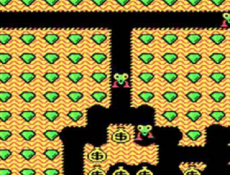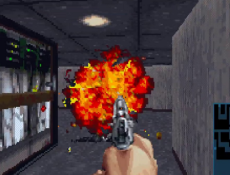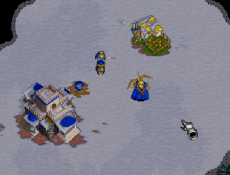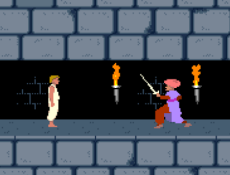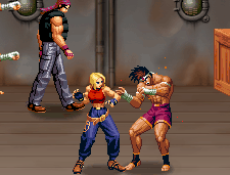Doom, first launched in the early 90s, rapidly redefined the landscape of interactive gaming by introducing a bold, immersive world where players take on the role of a lone space marine fighting to survive against a legion of demonic forces unleashed from Hell. The game unfolds across the harsh, Martian landscape, inside military bases, and deep within ancient demonic temples, each environment rendered with what was then groundbreaking 3D graphics technology. This immersive experience was about visuals; it was about creating a palpable sense of isolation and tension as players ventured deeper into enemy territory, with each level designed to challenge both their reflexes and their resolve.


DOOM
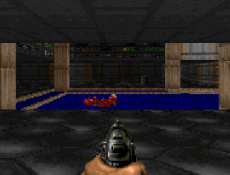
Advertisement
Advertisement
Doom, first launched in the early 90s, rapidly redefined the landscape of interactive gaming by introducing a bold, immersive world where players take on the role of a lone space marine fighting to survive against a legion of demonic forces unleashed from Hell. The game unfolds across the harsh, Martian landscape, inside military bases, and deep within ancient demonic temples, each environment rendered with what was then groundbreaking 3D graphics technology. This immersive experience was about visuals; it was about creating a palpable sense of isolation and tension as players ventured deeper into enemy territory, with each level designed to challenge both their reflexes and their resolve.
Revolutionary Gameplay and Design
Doom’s gameplay mechanism deeply influenced the first-person shooter genre, introducing a fast-paced, high-adrenaline combat style that required players to think and act quickly. The game’s arsenal, ranging from simple pistols to the iconic BFG 9000, provided varied combat tactics that could be adapted to the fast-changing dynamics of the battlefield. Enemies varied widely in type and difficulty, demanding strategic thinking and quick reflexes. The levels were mazes of corridors, rooms, and secret spaces, encouraging exploration and discovery, pushing the boundaries of traditional game design.
Aesthetic and Sonic Impact
Beyond its visual breakthroughs, Doom stood out for its aggressive and driving soundtrack, which perfectly encapsulated the game’s relentless pace and grim atmosphere. Composed by Robert Prince, the music combined pulsing, metal-inspired beats with darker, moody tracks to enhance the immersive experience. Sound effects were equally pioneering, with each weapon, monster, and environmental interaction having its own distinct auditory signature, thus heightening the sense of immersion.
Doom’s impact extended beyond its immediate gameplay experience, thanks to its engine’s modifiability, which catalyzed a community of gamers and developers passionate about customizing their gaming experience. This early embrace of user-generated content paved the way for a culture of game modding that has continued to influence the industry to this day.









